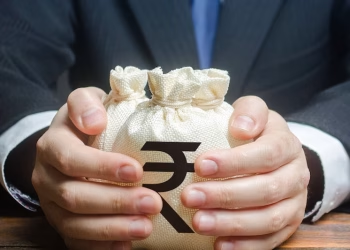The National Human Rights Commission has stepped into a brewing controversy over food choices on Indian trains, raising questions about dietary inclusivity and constitutional rights. Here’s what’s unfolding in this significant national debate.
Table of Contents
NHRC Controversy at a Glance
| Aspect | Details |
|---|---|
| Issue | Alleged serving of only halal meat on trains |
| Complainant | Sunil Ahirwar, Bhopal |
| NHRC Action | Notice issued on November 24, 2025 |
| Response Deadline | 2 weeks |
| Railway Clarification | No official halal provision exists |
| Food Standards | FSSAI guidelines followed |
What the NHRC Says
The National Human Rights Commission determined that serving only halal-processed meat on trains represents a potential violation of human rights. The commission’s bench, led by Member Priyank Kanoongo, took action under Section 12 of the Protection of Human Rights Act, 1993.
The NHRC emphasized that as a government agency, Indian Railways should honor food choices across all religious faiths, aligning with India’s secular constitutional principles.

The Constitutional Question
The complaint argues that the alleged practice violates multiple constitutional provisions including equality rights, non-discrimination principles, freedom of profession, dignity of life, and religious freedom under Articles 14, 15, 19(1)(g), 21, and 25.
For Hindu and Sikh passengers who traditionally prefer jhatka meat—prepared through single-stroke slaughter—the lack of alternatives raises concerns about religious accommodation in public services.
Railway Board’s Response
In a significant clarification, Railway Board officials stated categorically that no official provision exists for serving halal-certified food on Indian trains. All catering services follow Food Safety and Standards Authority of India (FSSAI) norms exclusively, with no mandate for halal certification.
This clarification was reinforced during a recent Chief Information Commission hearing on an RTI query, where the Indian Railway Catering and Tourism Corporation confirmed no halal-certified food policy exists.

The Livelihood Dimension
Beyond passenger preferences, the complaint highlights economic concerns affecting Scheduled Caste Hindu communities traditionally involved in the meat trade. The alleged exclusivity could impact their livelihood opportunities and equal participation in railway catering supply chains.
Critics contend that while official policy may not mandate halal certification, practical supplier selection might create indirect barriers for non-Muslim meat traders, raising questions about inclusive business opportunities in Indian Railways.
What Happens Next
The NHRC has directed the Railway Board Chairman to conduct a thorough investigation and submit an Action Taken Report within two weeks. This timeline makes the coming days crucial for determining how Indian Railways will address concerns about dietary inclusivity while maintaining operational efficiency.
The case underscores broader questions about balancing religious sensitivities, economic equity, and secular principles in public institutions serving India’s diverse population.
FAQs
Q: Does Indian Railways officially serve only halal meat on trains?
No. Railway Board officials have clarified that no official provision exists for serving halal-certified food. All catering follows FSSAI guidelines without any halal mandate. The controversy arose from allegations by passengers who felt dietary options weren’t inclusive of all religious preferences.
Q: What constitutional rights are involved in this food controversy?
The complaint cites Articles 14 (equality), 15 (non-discrimination), 19(1)(g) (freedom of profession), 21 (right to life with dignity), and 25 (religious freedom) of the Constitution. The NHRC is examining whether food service practices adequately respect these rights for passengers and workers from all religious communities in a secular public institution.








